afterLoad (455.67KB) (2.47ms)
afterInitialise (1.27MB) (42.84ms)
afterRoute (856.63KB) (21.04ms)
beforeRenderComponent com_tags (20.38KB) (288μs)
afterRenderComponent com_tags (3.99MB) (373ms)
afterDispatch (27.09KB) (3.02ms)
beforeRenderRawModule mod_articles_category (READ MORE...) (372.12KB) (13.98ms)
Before Access::preloadComponents (all components) (56.7KB) (523μs)
After Access::preloadComponents (all components) (103.05KB) (3.35ms)
Before Access::getAssetRules (id:8 name:com_content) (840B) (20μs)
After Access::getAssetRules (id:8 name:com_content) (7.05KB) (42μs)
afterRenderRawModule mod_articles_category (READ MORE...) (29.58KB) (191ms)
beforeRenderRawModule mod_tags_popular (Search) (4.81KB) (29μs)
afterRenderRawModule mod_tags_popular (Search) (5.85KB) (126ms)
beforeRenderRawModule mod_custom (Remember to download Heart Healthy Seniors) (816B) (27μs)
afterRenderRawModule mod_custom (Remember to download Heart Healthy Seniors) (4.86KB) (232μs)
beforeRenderRawModule mod_custom (Get additionel and more detailed knowledge ) (752B) (14μs)
afterRenderRawModule mod_custom (Get additionel and more detailed knowledge ) (1.67KB) (28μs)
beforeRenderRawModule mod_custom (BOOST YOUR IMMUNE DEFENSE) (608B) (11μs)
afterRenderRawModule mod_custom (BOOST YOUR IMMUNE DEFENSE) (928B) (22μs)
beforeRenderRawModule mod_custom (Are you taking supplements) (736B) (9μs)
afterRenderRawModule mod_custom (Are you taking supplements) (1.03KB) (20μs)
beforeRenderRawModule mod_custom (Antiaging) (720B) (9μs)
afterRenderRawModule mod_custom (Antiaging) (1.02KB) (19μs)
beforeRenderRawModule mod_custom (Exercise) (720B) (9μs)
afterRenderRawModule mod_custom (Exercise) (1.02KB) (18μs)
beforeRenderRawModule mod_custom (Check this before you buy a Q10 product) (752B) (8μs)
afterRenderRawModule mod_custom (Check this before you buy a Q10 product) (944B) (19μs)
beforeRenderRawModule mod_custom (Chronic fatigue tied Alan to his bed but Q10 capsules saved him:) (245.53KB) (14.24ms)
afterRenderRawModule mod_custom (Chronic fatigue tied Alan to his bed but Q10 capsules saved him:) (960B) (59μs)
beforeRenderModule mod_custom (Chronic fatigue tied Alan to his bed but Q10 capsules saved him:) (768B) (5μs)
afterRenderModule mod_custom (Chronic fatigue tied Alan to his bed but Q10 capsules saved him:) (1.3KB) (70μs)
beforeRenderRawModule mod_custom (Cholesterol-lowering without side effects:) (368B) (13μs)
afterRenderRawModule mod_custom (Cholesterol-lowering without side effects:) (2.19KB) (25μs)
beforeRenderModule mod_custom (Cholesterol-lowering without side effects:) (752B) (2μs)
afterRenderModule mod_custom (Cholesterol-lowering without side effects:) (1.28KB) (31μs)
beforeRenderModule mod_articles_category (READ MORE...) (21.32KB) (1.85ms)
afterRenderModule mod_articles_category (READ MORE...) (1.25KB) (60μs)
beforeRenderModule mod_tags_popular (Search) (5.17KB) (16μs)
afterRenderModule mod_tags_popular (Search) (1.27KB) (26μs)
beforeRenderModule mod_custom (Remember to download Heart Healthy Seniors) (1.17KB) (12μs)
afterRenderModule mod_custom (Remember to download Heart Healthy Seniors) (1.3KB) (23μs)
beforeRenderModule mod_custom (Get additionel and more detailed knowledge ) (368B) (10μs)
afterRenderModule mod_custom (Get additionel and more detailed knowledge ) (1.3KB) (21μs)
beforeRenderModule mod_custom (BOOST YOUR IMMUNE DEFENSE) (224B) (9μs)
afterRenderModule mod_custom (BOOST YOUR IMMUNE DEFENSE) (1.28KB) (21μs)
beforeRenderModule mod_custom (Are you taking supplements) (352B) (9μs)
afterRenderModule mod_custom (Are you taking supplements) (1.28KB) (20μs)
beforeRenderModule mod_custom (Antiaging) (336B) (9μs)
afterRenderModule mod_custom (Antiaging) (1.27KB) (26μs)
beforeRenderModule mod_custom (Exercise) (336B) (12μs)
afterRenderModule mod_custom (Exercise) (1.25KB) (27μs)
beforeRenderModule mod_custom (Check this before you buy a Q10 product) (352B) (9μs)
afterRenderModule mod_custom (Check this before you buy a Q10 product) (1.28KB) (20μs)
beforeRenderRawModule mod_menu (Main menu-US) (20.94KB) (2.72ms)
afterRenderRawModule mod_menu (Main menu-US) (152.66KB) (4.99ms)
beforeRenderModule mod_menu (Main menu-US) (720B) (5μs)
afterRenderModule mod_menu (Main menu-US) (4.36KB) (78μs)
beforeRenderRawModule mod_languages (Sprogskift) (3.44KB) (20μs)
afterRenderRawModule mod_languages (Sprogskift) (26.9KB) (11.67ms)
beforeRenderModule mod_languages (Sprogskift) (720B) (6μs)
afterRenderModule mod_languages (Sprogskift) (5.31KB) (21μs)
beforeRenderRawModule mod_finder () (6.34KB) (12μs)
afterRenderRawModule mod_finder () (214.16KB) (12.95ms)
beforeRenderModule mod_finder () (704B) (5μs)
afterRenderModule mod_finder () (5.79KB) (35μs)
beforeRenderRawModule mod_custom () (6.62KB) (2.24ms)
afterRenderRawModule mod_custom () (22.61KB) (4.3ms)
beforeRenderModule mod_custom () (704B) (6μs)
afterRenderModule mod_custom () (1.23KB) (55μs)
beforeRenderRawModule mod_menu (Main menu-US) (5.07KB) (111μs)
afterRenderRawModule mod_menu (Main menu-US) (5.8KB) (2.81ms)
beforeRenderModule mod_menu (Main menu-US) (720B) (5μs)
afterRenderModule mod_menu (Main menu-US) (1.25KB) (53μs)
beforeRenderRawModule mod_languages (Sprogskift Mobil) (912B) (18μs)
afterRenderRawModule mod_languages (Sprogskift Mobil) (3.89KB) (8.79ms)
beforeRenderModule mod_languages (Sprogskift Mobil) (720B) (5μs)
afterRenderModule mod_languages (Sprogskift Mobil) (1.27KB) (37μs)
beforeRenderRawModule mod_finder () (2.3KB) (11μs)
afterRenderRawModule mod_finder () (6.29KB) (8.9ms)
beforeRenderModule mod_finder () (704B) (5μs)
afterRenderModule mod_finder () (1.23KB) (49μs)
beforeRenderRawModule mod_custom () (8.66KB) (180μs)
afterRenderRawModule mod_custom () (904B) (143μs)
beforeRenderModule mod_custom () (704B) (3μs)
afterRenderModule mod_custom () (2.43KB) (26μs)
beforeRenderRawModule mod_custom () (688B) (84μs)
afterRenderRawModule mod_custom () (896B) (95μs)
beforeRenderModule mod_custom () (704B) (2μs)
afterRenderModule mod_custom () (2.71KB) (22μs)
afterRender (788.21KB) (40.54ms)
| 1 x afterRenderComponent com_tags (3.99MB) (41.45%) | 373.02ms |
| 1 x afterRenderRawModule mod_articles_category (READ MORE...) (29.58KB) (21.26%) | 191.35ms |
| 1 x afterRenderRawModule mod_tags_popular (Search) (5.85KB) (13.99%) | 125.88ms |
| 1 x afterInitialise (1.27MB) (4.76%) | 42.84ms |
| 1 x afterRender (788.21KB) (4.5%) | 40.54ms |
| 1 x afterRoute (856.63KB) (2.34%) | 21.04ms |
| 1 x beforeRenderRawModule mod_custom (Chronic fatigue tied Alan to his bed but Q10 capsules saved him:) (245.53KB) (1.58%) | 14.24ms |
| 1 x beforeRenderRawModule mod_articles_category (READ MORE...) (372.12KB) (1.55%) | 13.98ms |
| 1 x afterRenderRawModule mod_finder () (214.16KB) (1.44%) | 12.95ms |
| 1 x afterRenderRawModule mod_languages (Sprogskift) (26.9KB) (1.3%) | 11.67ms |
| 1 x afterRenderRawModule mod_finder () (6.29KB) (0.99%) | 8.90ms |
| 1 x afterRenderRawModule mod_languages (Sprogskift Mobil) (3.89KB) (0.98%) | 8.79ms |
| 1 x afterRenderRawModule mod_menu (Main menu-US) (152.66KB) (0.55%) | 4.99ms |
| 1 x afterRenderRawModule mod_custom () (22.61KB) (0.48%) | 4.30ms |
| 1 x After Access::preloadComponents (all components) (103.05KB) (0.37%) | 3.35ms |
| 1 x afterDispatch (27.09KB) (0.34%) | 3.02ms |
| 1 x afterRenderRawModule mod_menu (Main menu-US) (5.8KB) (0.31%) | 2.81ms |
| 1 x beforeRenderRawModule mod_menu (Main menu-US) (20.94KB) (0.3%) | 2.72ms |
| 1 x afterLoad (455.67KB) (0.27%) | 2.47ms |
| 1 x beforeRenderRawModule mod_custom () (6.62KB) (0.25%) | 2.24ms |
| 1 x beforeRenderModule mod_articles_category (READ MORE...) (21.32KB) (0.21%) | 1.85ms |
| 1 x Before Access::preloadComponents (all components) (56.7KB) (0.06%) | 523μs |
| 1 x beforeRenderComponent com_tags (20.38KB) (0.03%) | 288μs |
| 1 x afterRenderRawModule mod_custom (Remember to download Heart Healthy Seniors) (4.86KB) (0.03%) | 232μs |
| 1 x beforeRenderRawModule mod_custom () (8.66KB) (0.02%) | 180μs |
| 1 x afterRenderRawModule mod_custom () (904B) (0.02%) | 143μs |
| 1 x beforeRenderRawModule mod_menu (Main menu-US) (5.07KB) (0.01%) | 111μs |
| 1 x afterRenderRawModule mod_custom () (896B) (0.01%) | 95μs |
| 1 x beforeRenderRawModule mod_custom () (688B) (0.01%) | 84μs |
| 1 x afterRenderModule mod_menu (Main menu-US) (4.36KB) (0.01%) | 78μs |
| 1 x afterRenderModule mod_custom (Chronic fatigue tied Alan to his bed but Q10 capsules saved him:) (1.3KB) (0.01%) | 70μs |
| 1 x afterRenderModule mod_articles_category (READ MORE...) (1.25KB) (0.01%) | 60μs |
| 1 x afterRenderRawModule mod_custom (Chronic fatigue tied Alan to his bed but Q10 capsules saved him:) (960B) (0.01%) | 59μs |
| 1 x afterRenderModule mod_custom () (1.23KB) (0.01%) | 55μs |
| 1 x afterRenderModule mod_menu (Main menu-US) (1.25KB) (0.01%) | 53μs |
| 1 x afterRenderModule mod_finder () (1.23KB) (0.01%) | 49μs |
| 1 x After Access::getAssetRules (id:8 name:com_content) (7.05KB) (0%) | 42μs |
| 1 x afterRenderModule mod_languages (Sprogskift Mobil) (1.27KB) (0%) | 37μs |
| 1 x afterRenderModule mod_finder () (5.79KB) (0%) | 35μs |
| 1 x afterRenderModule mod_custom (Cholesterol-lowering without side effects:) (1.28KB) (0%) | 31μs |
| 1 x beforeRenderRawModule mod_tags_popular (Search) (4.81KB) (0%) | 29μs |
| 1 x afterRenderRawModule mod_custom (Get additionel and more detailed knowledge ) (1.67KB) (0%) | 28μs |
| 1 x beforeRenderRawModule mod_custom (Remember to download Heart Healthy Seniors) (816B) (0%) | 27μs |
| 1 x afterRenderModule mod_custom (Exercise) (1.25KB) (0%) | 27μs |
| 1 x afterRenderModule mod_tags_popular (Search) (1.27KB) (0%) | 26μs |
| 1 x afterRenderModule mod_custom (Antiaging) (1.27KB) (0%) | 26μs |
| 1 x afterRenderModule mod_custom () (2.43KB) (0%) | 26μs |
| 1 x afterRenderRawModule mod_custom (Cholesterol-lowering without side effects:) (2.19KB) (0%) | 25μs |
| 1 x afterRenderModule mod_custom (Remember to download Heart Healthy Seniors) (1.3KB) (0%) | 23μs |
| 1 x afterRenderRawModule mod_custom (BOOST YOUR IMMUNE DEFENSE) (928B) (0%) | 22μs |
| 1 x afterRenderModule mod_custom () (2.71KB) (0%) | 22μs |
| 1 x afterRenderModule mod_custom (Get additionel and more detailed knowledge ) (1.3KB) (0%) | 21μs |
| 1 x afterRenderModule mod_custom (BOOST YOUR IMMUNE DEFENSE) (1.28KB) (0%) | 21μs |
| 1 x afterRenderModule mod_languages (Sprogskift) (5.31KB) (0%) | 21μs |
| 1 x Before Access::getAssetRules (id:8 name:com_content) (840B) (0%) | 20μs |
| 1 x afterRenderRawModule mod_custom (Are you taking supplements) (1.03KB) (0%) | 20μs |
| 1 x afterRenderModule mod_custom (Check this before you buy a Q10 product) (1.28KB) (0%) | 20μs |
| 1 x beforeRenderRawModule mod_languages (Sprogskift) (3.44KB) (0%) | 20μs |
| 1 x afterRenderModule mod_custom (Are you taking supplements) (1.28KB) (0%) | 20μs |
| 1 x afterRenderRawModule mod_custom (Check this before you buy a Q10 product) (944B) (0%) | 19μs |
| 1 x afterRenderRawModule mod_custom (Antiaging) (1.02KB) (0%) | 19μs |
| 1 x afterRenderRawModule mod_custom (Exercise) (1.02KB) (0%) | 18μs |
| 1 x beforeRenderRawModule mod_languages (Sprogskift Mobil) (912B) (0%) | 18μs |
| 1 x beforeRenderModule mod_tags_popular (Search) (5.17KB) (0%) | 16μs |
| 1 x beforeRenderRawModule mod_custom (Get additionel and more detailed knowledge ) (752B) (0%) | 14μs |
| 1 x beforeRenderRawModule mod_custom (Cholesterol-lowering without side effects:) (368B) (0%) | 13μs |
| 1 x beforeRenderModule mod_custom (Remember to download Heart Healthy Seniors) (1.17KB) (0%) | 12μs |
| 1 x beforeRenderModule mod_custom (Exercise) (336B) (0%) | 12μs |
| 1 x beforeRenderRawModule mod_finder () (6.34KB) (0%) | 12μs |
| 3 x beforeRenderModule mod_custom () (704B) (0%) | 11μs |
| 1 x beforeRenderRawModule mod_custom (BOOST YOUR IMMUNE DEFENSE) (608B) (0%) | 11μs |
| 1 x beforeRenderRawModule mod_finder () (2.3KB) (0%) | 11μs |
| 1 x beforeRenderModule mod_custom (Get additionel and more detailed knowledge ) (368B) (0%) | 10μs |
| 2 x beforeRenderModule mod_menu (Main menu-US) (720B) (0%) | 10μs |
| 2 x beforeRenderModule mod_finder () (704B) (0%) | 10μs |
| 1 x beforeRenderRawModule mod_custom (Are you taking supplements) (736B) (0%) | 9μs |
| 1 x beforeRenderRawModule mod_custom (Antiaging) (720B) (0%) | 9μs |
| 1 x beforeRenderRawModule mod_custom (Exercise) (720B) (0%) | 9μs |
| 1 x beforeRenderModule mod_custom (BOOST YOUR IMMUNE DEFENSE) (224B) (0%) | 9μs |
| 1 x beforeRenderModule mod_custom (Are you taking supplements) (352B) (0%) | 9μs |
| 1 x beforeRenderModule mod_custom (Antiaging) (336B) (0%) | 9μs |
| 1 x beforeRenderModule mod_custom (Check this before you buy a Q10 product) (352B) (0%) | 9μs |
| 1 x beforeRenderRawModule mod_custom (Check this before you buy a Q10 product) (752B) (0%) | 8μs |
| 1 x beforeRenderModule mod_languages (Sprogskift) (720B) (0%) | 6μs |
| 1 x beforeRenderModule mod_custom (Chronic fatigue tied Alan to his bed but Q10 capsules saved him:) (768B) (0%) | 5μs |
| 1 x beforeRenderModule mod_languages (Sprogskift Mobil) (720B) (0%) | 5μs |
| 1 x beforeRenderModule mod_custom (Cholesterol-lowering without side effects:) (752B) (0%) | 2μs |
 According to the statistics, far too many patients contract an infection while being hospitalized in a Danish hospital. This has enormous human and economic costs that need to be addressed. Hospital infections are not only a consequence of poor hygiene, it actually turns out that 40 percent of the patients are malnourished to some degree, which impairs their immune system and makes them an easier target for infections. Lack of vitamin C, vitamin D, selenium, zinc, and iron seem to be the big and overlooked problem.
According to the statistics, far too many patients contract an infection while being hospitalized in a Danish hospital. This has enormous human and economic costs that need to be addressed. Hospital infections are not only a consequence of poor hygiene, it actually turns out that 40 percent of the patients are malnourished to some degree, which impairs their immune system and makes them an easier target for infections. Lack of vitamin C, vitamin D, selenium, zinc, and iron seem to be the big and overlooked problem.







 A lot of sports and fitness disciplines are indoor activities. According to a new American study, this increases the risk of becoming vitamin D-deficient. Not only can a vitamin D deficiency hamper your performance, it can also increase your risk of acute infections, chronic inflammation, osteoporosis, cancer, and a number of other health problems. To make matters worse, people living at northern latitudes can only synthesize vitamin D in their skin during the summer period where the sun sits high in the sky, and the body’s vitamin D stores are limited during the winter period.
A lot of sports and fitness disciplines are indoor activities. According to a new American study, this increases the risk of becoming vitamin D-deficient. Not only can a vitamin D deficiency hamper your performance, it can also increase your risk of acute infections, chronic inflammation, osteoporosis, cancer, and a number of other health problems. To make matters worse, people living at northern latitudes can only synthesize vitamin D in their skin during the summer period where the sun sits high in the sky, and the body’s vitamin D stores are limited during the winter period.
 It is not the actual COVID-19 virus that can become lethal. It is the immune system’s overreaction with hyperinflammation and a storm of cytokines that destroys healthy tissue in the lungs, the cardiovascular system, and other places in the body, according to a new article that is published in The Lancet. The capacity of the immune system determines if an infection like COVID-19 is either harmless or life-threatening. For that reason, hygienic measures, masks, isolation, and delayed vaccines are not sufficient. We also need to bolster our immune system against COVID-19 and other pandemics that may occur in the future. Let’s look closer at vitamin C, vitamin D, selenium and zinc, all of which are essential for preventing a well-functioning immune system from going off its rails. What is also worth mentioning is that many people lack these nutrients, especially older people and other exposed groups.
It is not the actual COVID-19 virus that can become lethal. It is the immune system’s overreaction with hyperinflammation and a storm of cytokines that destroys healthy tissue in the lungs, the cardiovascular system, and other places in the body, according to a new article that is published in The Lancet. The capacity of the immune system determines if an infection like COVID-19 is either harmless or life-threatening. For that reason, hygienic measures, masks, isolation, and delayed vaccines are not sufficient. We also need to bolster our immune system against COVID-19 and other pandemics that may occur in the future. Let’s look closer at vitamin C, vitamin D, selenium and zinc, all of which are essential for preventing a well-functioning immune system from going off its rails. What is also worth mentioning is that many people lack these nutrients, especially older people and other exposed groups.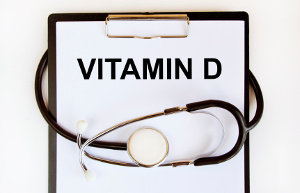 Danish scientists from Aalborg University have published a study of mice in which they demonstrate that vitamin D prevents cancer by affecting a particular kind of gut bacteria. A subsequent analysis of 1.5 million Danes shows a similar relation between low vitamin D levels in the blood and an increased risk of several cancer types. What is also worth mentioning is that the official vitamin D recommendations appear to be too low to be able optimize blood levels of the nutrient.
Danish scientists from Aalborg University have published a study of mice in which they demonstrate that vitamin D prevents cancer by affecting a particular kind of gut bacteria. A subsequent analysis of 1.5 million Danes shows a similar relation between low vitamin D levels in the blood and an increased risk of several cancer types. What is also worth mentioning is that the official vitamin D recommendations appear to be too low to be able optimize blood levels of the nutrient.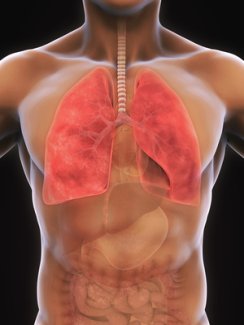 Taking a supplement of vitamin D in combination with your prescription asthma medicine may halve your risk of an asthma attack that would require hospitalization, according to a new meta-analysis from Queen Mary University in London (QMUL). A vitamin D deficiency alone, which is rather common at northern latitudes, can increase the risk of asthma. Therefore, it is vital to make sure to have sufficiently high levels of this nutrient all year round to protect your respiratory tract.
Taking a supplement of vitamin D in combination with your prescription asthma medicine may halve your risk of an asthma attack that would require hospitalization, according to a new meta-analysis from Queen Mary University in London (QMUL). A vitamin D deficiency alone, which is rather common at northern latitudes, can increase the risk of asthma. Therefore, it is vital to make sure to have sufficiently high levels of this nutrient all year round to protect your respiratory tract. According to a new study from Johns Hopkins University in the United States, vitamin D is able to protect overweight children against asthma caused by urban air pollution. Sunshine during the summer period is the main source of vitamin D, but due to our modern lifestyles, many people, including children, fail to get enough of the nutrient. This may have widespread consequences, as lack of vitamin D also increases the risk of overweight.
According to a new study from Johns Hopkins University in the United States, vitamin D is able to protect overweight children against asthma caused by urban air pollution. Sunshine during the summer period is the main source of vitamin D, but due to our modern lifestyles, many people, including children, fail to get enough of the nutrient. This may have widespread consequences, as lack of vitamin D also increases the risk of overweight.

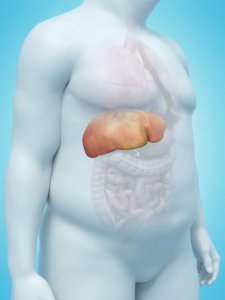 It has been known for a long time that a lack of vitamin D increases your risk of overweight. Now, an Italian study gives a whole new view on low vitamin D and how it is linked to elevated levels of TMAO (Trimethylamine N-oxide), a metabolite that increases the risk of non-alcoholic fatty liver and accompanying complications such as insulin resistance, diabetes, and cardiovascular disease. The scientists also looked at the gut flora’s and the liver’s roles in TMAO production and the fact that low vitamin D levels and overweight are a vicious cycle. It appears that overweight people need more vitamin D than the recommended level. In terms of non-alcoholic fatty liver, we will also be looking at the controversial delicacy, foie gras, and the fact that carbohydrate overconsumption burdens your liver.
It has been known for a long time that a lack of vitamin D increases your risk of overweight. Now, an Italian study gives a whole new view on low vitamin D and how it is linked to elevated levels of TMAO (Trimethylamine N-oxide), a metabolite that increases the risk of non-alcoholic fatty liver and accompanying complications such as insulin resistance, diabetes, and cardiovascular disease. The scientists also looked at the gut flora’s and the liver’s roles in TMAO production and the fact that low vitamin D levels and overweight are a vicious cycle. It appears that overweight people need more vitamin D than the recommended level. In terms of non-alcoholic fatty liver, we will also be looking at the controversial delicacy, foie gras, and the fact that carbohydrate overconsumption burdens your liver. A new British study that is published in British Journal of Nutrition shows that getting too little vitamin D during pregnancy has a negative effect on the social development and motor skills of the toddler. Vitamin D is believed to play a role in brain development. It is vital for the pregnant mother to pay careful attention to getting enough vitamin D all year round, as our modern lifestyle with indoor activities, our frequent use of sunscreen with high sun factor, being overweight, and having dark skin contribute to the widespread deficiency of this nutrient.
A new British study that is published in British Journal of Nutrition shows that getting too little vitamin D during pregnancy has a negative effect on the social development and motor skills of the toddler. Vitamin D is believed to play a role in brain development. It is vital for the pregnant mother to pay careful attention to getting enough vitamin D all year round, as our modern lifestyle with indoor activities, our frequent use of sunscreen with high sun factor, being overweight, and having dark skin contribute to the widespread deficiency of this nutrient. According to Bruce Ames, an American biochemist, ageing processes are largely due to lack of nutrients. One important contributing factor is the fact that our uptake and utilization of vitamins and minerals decrease with age. In addition, a lot of different types of medicine block our ability to utilize different nutrients. As a result of this, many of our enzyme processes slow down, making our cells increasingly vulnerable and that increases our risk of disease. Nonetheless, there is a lot we can do to optimize our intake and utilization of nutrients, particularly with respect to vitamin B12, vitamin D, calcium, iron, selenium, and zinc. It is also worth taking a look at Q10 for energy turnover and melatonin for healthy sleep. Our endogenous synthesis of both compounds decreases with age.
According to Bruce Ames, an American biochemist, ageing processes are largely due to lack of nutrients. One important contributing factor is the fact that our uptake and utilization of vitamins and minerals decrease with age. In addition, a lot of different types of medicine block our ability to utilize different nutrients. As a result of this, many of our enzyme processes slow down, making our cells increasingly vulnerable and that increases our risk of disease. Nonetheless, there is a lot we can do to optimize our intake and utilization of nutrients, particularly with respect to vitamin B12, vitamin D, calcium, iron, selenium, and zinc. It is also worth taking a look at Q10 for energy turnover and melatonin for healthy sleep. Our endogenous synthesis of both compounds decreases with age.
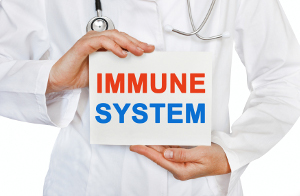 Lack of vitamin D is rather common and taking large quantities of the nutrient can not only protect against virus infections like COVID-19 but even counteract the life-threatening complications in those affected with the disease, according to a new, comprehensive, Irish report (TILDA) from Trinity College Dublin (University of Dublin in Ireland). The TILDA report supports many other published studies showing that the immune system is unable to function without vitamin D. The main focus in the battle against COVID-19 is hygiene, isolation, and delayed immunization with vaccines. However, it is also essential to bolster the immune defense, as this determines the difference between being able to ward off the infection, suffer mild symptoms only, or succumb. The scientists recommend that all adults take a high-dosed vitamin D supplement, especially older people, nursing home residents, chronically ill people, hospital patients, health professionals and other exposed groups. That way, we are better protected against future epidemics.
Lack of vitamin D is rather common and taking large quantities of the nutrient can not only protect against virus infections like COVID-19 but even counteract the life-threatening complications in those affected with the disease, according to a new, comprehensive, Irish report (TILDA) from Trinity College Dublin (University of Dublin in Ireland). The TILDA report supports many other published studies showing that the immune system is unable to function without vitamin D. The main focus in the battle against COVID-19 is hygiene, isolation, and delayed immunization with vaccines. However, it is also essential to bolster the immune defense, as this determines the difference between being able to ward off the infection, suffer mild symptoms only, or succumb. The scientists recommend that all adults take a high-dosed vitamin D supplement, especially older people, nursing home residents, chronically ill people, hospital patients, health professionals and other exposed groups. That way, we are better protected against future epidemics.
 We all need loads of energy to help us through the day feeling on top of the world. Needless to say, this requires stable blood sugar levels, daylight, exercise, and a good night’s sleep. But what are the energy-providing substances in our food? And why are Q10 and particular vitamins and minerals so essential for our energy metabolism and our physical and mental well-being? An article recently published in Medical News Today looks at this and explains that being deficient of a single nutrient can affect our metabolism, energy levels, and weight regulation. Luckily, this can be compensated for so we get the necessary energy boost.
We all need loads of energy to help us through the day feeling on top of the world. Needless to say, this requires stable blood sugar levels, daylight, exercise, and a good night’s sleep. But what are the energy-providing substances in our food? And why are Q10 and particular vitamins and minerals so essential for our energy metabolism and our physical and mental well-being? An article recently published in Medical News Today looks at this and explains that being deficient of a single nutrient can affect our metabolism, energy levels, and weight regulation. Luckily, this can be compensated for so we get the necessary energy boost.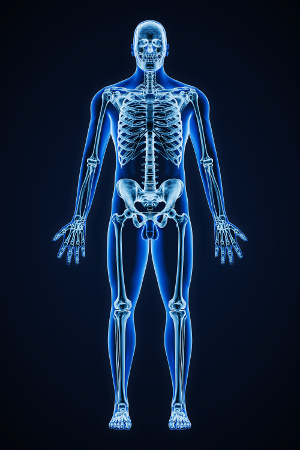
 Melanoma is a type of malignant skin cancer that spreads rapidly. Being vitamin D-deficient doubles the risk of dying of the disease, according to a Spanish study that was presented at the European Academy of Dermatology and Venereology congress. It is commonly known that sunburns, which one should generally avoid, increase the risk of contracting skin cancer. But we must not forget that the summer sun is our main source of vitamin D and at our latitude, it necessary to take a vitamin D supplement in the wintertime. People who avoid the sun or have difficulty with synthesizing vitamin D in their skin should take a supplement all year round.
Melanoma is a type of malignant skin cancer that spreads rapidly. Being vitamin D-deficient doubles the risk of dying of the disease, according to a Spanish study that was presented at the European Academy of Dermatology and Venereology congress. It is commonly known that sunburns, which one should generally avoid, increase the risk of contracting skin cancer. But we must not forget that the summer sun is our main source of vitamin D and at our latitude, it necessary to take a vitamin D supplement in the wintertime. People who avoid the sun or have difficulty with synthesizing vitamin D in their skin should take a supplement all year round.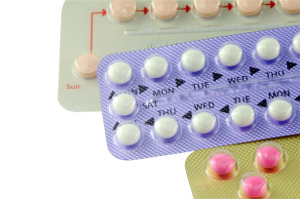 According to Danish research, more than one in three women suspect that their birth control pills cause side effects. Other studies show that birth control pills affect the body’s ability to utilize several different B vitamins, vitamin C, vitamin E, magnesium, selenium, and zinc. The lack of these essential nutrients contributes to a number of common side effects such as fluid retention, blood clots, cancer, and depression.
According to Danish research, more than one in three women suspect that their birth control pills cause side effects. Other studies show that birth control pills affect the body’s ability to utilize several different B vitamins, vitamin C, vitamin E, magnesium, selenium, and zinc. The lack of these essential nutrients contributes to a number of common side effects such as fluid retention, blood clots, cancer, and depression.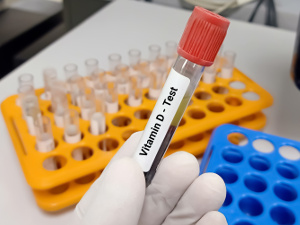 Blood levels of vitamin D serve as an early indicator of future health problems such as cardiovascular disease, osteoporosis, and cancer, according to a review article that was presented recently to the European Society of Endocrinology. Lack of vitamin D is rather common and a threat to public health, which is why the scientists suggest measuring levels of total vitamin D and free vitamin D in the blood. By optimizing levels of the nutrient in the blood it is possible to prevent a host of different lifestyle diseases as well as early death. It is not enough just to take any random vitamin D supplement. It must contain the right dose and have good absorption in order to be able to optimize vitamin D levels in the blood.
Blood levels of vitamin D serve as an early indicator of future health problems such as cardiovascular disease, osteoporosis, and cancer, according to a review article that was presented recently to the European Society of Endocrinology. Lack of vitamin D is rather common and a threat to public health, which is why the scientists suggest measuring levels of total vitamin D and free vitamin D in the blood. By optimizing levels of the nutrient in the blood it is possible to prevent a host of different lifestyle diseases as well as early death. It is not enough just to take any random vitamin D supplement. It must contain the right dose and have good absorption in order to be able to optimize vitamin D levels in the blood.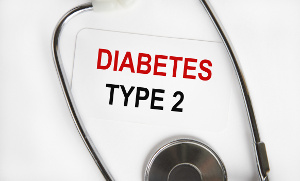 Type 2 diabetes is spreading like a bushfire. An alarmingly many people have metabolic syndrome – or pre-diabetes – which is characterized by insulin resistance, hypertension, elevated cholesterol levels and abdominal obesity (apple-shaped body). Type 2 diabetes and metabolic syndrome are associated with enormous human and socio-economic costs. In this article, we will look closer at chromium, vitamin D, magnesium, and coenzyme Q10 plus relevant diet changes to see how they can positively affect blood sugar levels, cholesterol balance, and weight control. We will also take a closer look at supplements that are able to prevent diabetic neuropathy, a disorder that can lead to amputations.
Type 2 diabetes is spreading like a bushfire. An alarmingly many people have metabolic syndrome – or pre-diabetes – which is characterized by insulin resistance, hypertension, elevated cholesterol levels and abdominal obesity (apple-shaped body). Type 2 diabetes and metabolic syndrome are associated with enormous human and socio-economic costs. In this article, we will look closer at chromium, vitamin D, magnesium, and coenzyme Q10 plus relevant diet changes to see how they can positively affect blood sugar levels, cholesterol balance, and weight control. We will also take a closer look at supplements that are able to prevent diabetic neuropathy, a disorder that can lead to amputations. Breast cancer is very common in the Western world and modern society. The disease is thought to be associated with lifestyle factors and lack of essential nutrients. For instance, it has been known for a long time that lack of vitamin D increases the risk of breast cancer. According to a new study that is published in the science journal Endocrinology, there is also a link between lack of vitamin D and the development of metastases in the lungs. Previous research also shows that the widespread deficiency of selenium, iodine, omega-3 fatty acids, and melatonin can increase the risk of breast cancer but supplements can help prevent the disease and possibly be used as add-on therapy.
Breast cancer is very common in the Western world and modern society. The disease is thought to be associated with lifestyle factors and lack of essential nutrients. For instance, it has been known for a long time that lack of vitamin D increases the risk of breast cancer. According to a new study that is published in the science journal Endocrinology, there is also a link between lack of vitamin D and the development of metastases in the lungs. Previous research also shows that the widespread deficiency of selenium, iodine, omega-3 fatty acids, and melatonin can increase the risk of breast cancer but supplements can help prevent the disease and possibly be used as add-on therapy. Allergic diseases such as asthma, hay fever, food allergies and contact dermatitis are becoming increasingly common. It makes a big difference to breastfeed for at least six months because breast milk contains various compounds that strengthen the child’s gut flora and immune defense. Vitamin D supplements are also important, and Icelandic research suggests that is pays off to continue giving them to children until the age of six years. Unfortunately, many parents forget to give their children vitamin D until the age of two, as recommended. Also, many children get too little sunlight during the summer period and don’t get vitamin D supplements when it is winter, and that is something we all need at these latitudes.
Allergic diseases such as asthma, hay fever, food allergies and contact dermatitis are becoming increasingly common. It makes a big difference to breastfeed for at least six months because breast milk contains various compounds that strengthen the child’s gut flora and immune defense. Vitamin D supplements are also important, and Icelandic research suggests that is pays off to continue giving them to children until the age of six years. Unfortunately, many parents forget to give their children vitamin D until the age of two, as recommended. Also, many children get too little sunlight during the summer period and don’t get vitamin D supplements when it is winter, and that is something we all need at these latitudes.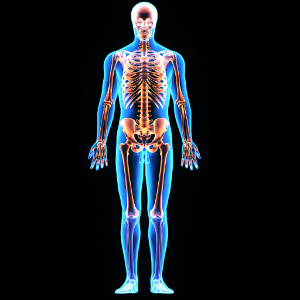
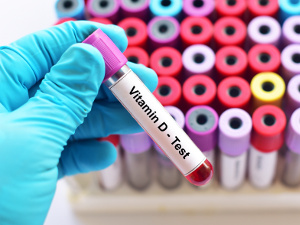

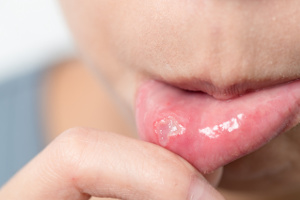 Around 25 percent of adults have had canker sores, also referred to as recurrent aphthous stomatitis (RAS). The condition is characterized by painful, superficial sores, and we don’t know all that much about what causes it or how to treat it. However, according to a meta-analysis that is published in Frontiers in Nutrition, a possible cause may be low blood levels of vitamin D, a nutrient with a key role in oral health and immune defense.
Around 25 percent of adults have had canker sores, also referred to as recurrent aphthous stomatitis (RAS). The condition is characterized by painful, superficial sores, and we don’t know all that much about what causes it or how to treat it. However, according to a meta-analysis that is published in Frontiers in Nutrition, a possible cause may be low blood levels of vitamin D, a nutrient with a key role in oral health and immune defense. According to a new study, hormone-disrupting substances like bisphenol-A and phthalates can lower levels of vitamin D in the bloodstream. During the winter period, it is a problem to get enough vitamin D to begin with, as the sun sits low in the sky and we only get a limited amount of the nutrient from our diet. The combination of too little vitamin D and hormone-disrupting substances is rather unfortunate because lack of vitamin D increases the risk of infections, winter depression, diabetes, cardiovascular diseases, osteoporosis, and cancer.
According to a new study, hormone-disrupting substances like bisphenol-A and phthalates can lower levels of vitamin D in the bloodstream. During the winter period, it is a problem to get enough vitamin D to begin with, as the sun sits low in the sky and we only get a limited amount of the nutrient from our diet. The combination of too little vitamin D and hormone-disrupting substances is rather unfortunate because lack of vitamin D increases the risk of infections, winter depression, diabetes, cardiovascular diseases, osteoporosis, and cancer. A growing number of children are affected by asthma, which is associated with a reduced quality of life. Diet plays a significant role in the development of the disease, and it appears that excessive sugar intake from breakfast cereals, soft drinks, candy, and other sources increases the risk. A deficiency in vitamin D and magnesium, which is widespread, also raises the risk according to an article published in Frontiers in Nutrition. But why does sugar increase the risk of developing asthma, and how can vitamin D and magnesium help protect against the disease?
A growing number of children are affected by asthma, which is associated with a reduced quality of life. Diet plays a significant role in the development of the disease, and it appears that excessive sugar intake from breakfast cereals, soft drinks, candy, and other sources increases the risk. A deficiency in vitamin D and magnesium, which is widespread, also raises the risk according to an article published in Frontiers in Nutrition. But why does sugar increase the risk of developing asthma, and how can vitamin D and magnesium help protect against the disease? Children and youngsters who are exposed to lots of sunlight and have plenty of vitamin D in their blood are much less likely to develop sclerosis later in life, according to a new study. In fact, there is a reason why sclerosis is more prevalent at northern latitudes. During the winter, the sun sits too low in the sky for us humans to be able to synthesize vitamin D in the skin. However, one must also realize that the intensified use of sunscreen can block the skin’s production of vitamin D. It is therefore essential to get plenty of vitamin D from sun exposure or to take a vitamin D supplement, as this may help prevent diseases such as sclerosis that take years to develop.
Children and youngsters who are exposed to lots of sunlight and have plenty of vitamin D in their blood are much less likely to develop sclerosis later in life, according to a new study. In fact, there is a reason why sclerosis is more prevalent at northern latitudes. During the winter, the sun sits too low in the sky for us humans to be able to synthesize vitamin D in the skin. However, one must also realize that the intensified use of sunscreen can block the skin’s production of vitamin D. It is therefore essential to get plenty of vitamin D from sun exposure or to take a vitamin D supplement, as this may help prevent diseases such as sclerosis that take years to develop.


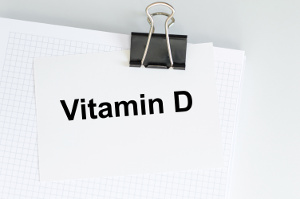
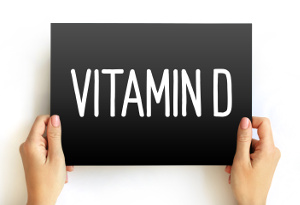
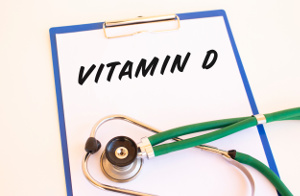
 When it comes to battling COVID-19, the main focus is on hygiene, face masks, lockdown, and delayed vaccines. For several months, scientists have urged people to take vitamin D supplements during the winter period as a way of preventing new waves of COVID-19. This is because vitamin D is of vital importance for a well-functioning immune system and it is known that deficiencies of this nutrient contribute to the spread of seasonal virus infections. We also see that groups of people that are most likely to be vitamin D-deficient – including seniors, nursing home residents, people with dark skin, overweight individuals, diabetics, and those with chronic diseases – are most vulnerable towards COVID-19. The British government is already handing out vitamin D supplements to exposed groups, according to an article in Daily Mail and a review article that is published in British Medical Journal. But why is vitamin D so important for the immune defense, why are some people more likely to become deficient, and how much vitamin D do we actually need? Also, will vaccines cut the mustard if COVID-19 mutates?
When it comes to battling COVID-19, the main focus is on hygiene, face masks, lockdown, and delayed vaccines. For several months, scientists have urged people to take vitamin D supplements during the winter period as a way of preventing new waves of COVID-19. This is because vitamin D is of vital importance for a well-functioning immune system and it is known that deficiencies of this nutrient contribute to the spread of seasonal virus infections. We also see that groups of people that are most likely to be vitamin D-deficient – including seniors, nursing home residents, people with dark skin, overweight individuals, diabetics, and those with chronic diseases – are most vulnerable towards COVID-19. The British government is already handing out vitamin D supplements to exposed groups, according to an article in Daily Mail and a review article that is published in British Medical Journal. But why is vitamin D so important for the immune defense, why are some people more likely to become deficient, and how much vitamin D do we actually need? Also, will vaccines cut the mustard if COVID-19 mutates? Since December of 2021, two large meta-analyses have revealed that having low levels of vitamin D in your blood increases the risk of COVID-19 infections, severe disease, admission to intensive care, and death. A third meta-analysis has shown that only 12 percent of COVID-19 patients who took supplements of vitamin D were admitted to intensive care, compared to 26 percent of the non-supplemented. Finally, a fourth meta-analysis shows that supplementation with vitamin D significantly lowers the risk of life-threatening COVID-19 infections. This is particularly relevant during the winter period and among people at risk of being vitamin D-deficient, including groups such as seniors, people with dark skin, overweight people, and the chronically ill. There is an alarming need for increased focus on vitamin D supplements to prevent and treat COVID-19 and other virus infections by optimizing blood levels of the nutrient. It is also important to get plenty of magnesium, a nutrient the body needs to activate vitamin D.
Since December of 2021, two large meta-analyses have revealed that having low levels of vitamin D in your blood increases the risk of COVID-19 infections, severe disease, admission to intensive care, and death. A third meta-analysis has shown that only 12 percent of COVID-19 patients who took supplements of vitamin D were admitted to intensive care, compared to 26 percent of the non-supplemented. Finally, a fourth meta-analysis shows that supplementation with vitamin D significantly lowers the risk of life-threatening COVID-19 infections. This is particularly relevant during the winter period and among people at risk of being vitamin D-deficient, including groups such as seniors, people with dark skin, overweight people, and the chronically ill. There is an alarming need for increased focus on vitamin D supplements to prevent and treat COVID-19 and other virus infections by optimizing blood levels of the nutrient. It is also important to get plenty of magnesium, a nutrient the body needs to activate vitamin D. Several studies have shown that optimizing your blood vitamin D levels with supplementation reduces the risk of contracting respiratory infections such as COVID-19. A new Hungarian study, published in Nutrients, has also found that very high doses of vitamin D given to hospitalized COVID-19 patients can reduce the risk of prolonged hospital stays and death due to severe complications.
Several studies have shown that optimizing your blood vitamin D levels with supplementation reduces the risk of contracting respiratory infections such as COVID-19. A new Hungarian study, published in Nutrients, has also found that very high doses of vitamin D given to hospitalized COVID-19 patients can reduce the risk of prolonged hospital stays and death due to severe complications.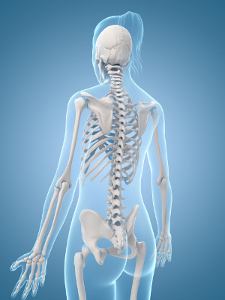 Many people avoid dairy products because they are lactose intolerant, are vegan, or for other reasons. Milk is a good source of nutrients, especially calcium, but you can easily get enough calcium from other food sources. What is more, it appears that vitamin D, vitamin K2, and the calcium/magnesium ratio is even more important than calcium alone for the structure and maintenance of strong bones. Another thing to remember is that sugar, soft drinks, stimulants, and certain types of medicine can disrupt the bone-building processes. Therefore, having strong bones is about a lot more than dairy products and calcium alone. Finally, don’t forget that daily weight-bearing exercise stimulates bone density.
Many people avoid dairy products because they are lactose intolerant, are vegan, or for other reasons. Milk is a good source of nutrients, especially calcium, but you can easily get enough calcium from other food sources. What is more, it appears that vitamin D, vitamin K2, and the calcium/magnesium ratio is even more important than calcium alone for the structure and maintenance of strong bones. Another thing to remember is that sugar, soft drinks, stimulants, and certain types of medicine can disrupt the bone-building processes. Therefore, having strong bones is about a lot more than dairy products and calcium alone. Finally, don’t forget that daily weight-bearing exercise stimulates bone density. Vitamin D is of vital importance to a well-functioning immune defense and it protects against virus infections. This has been confirmed by Denmark’s infection control agency, Statens Serum Institut, and researchers from Harvard University in Boston, USA. In a study, the Danish and American scientists found that having low levels of vitamin D in the blood is associated with a greater risk of severe disease outcome in patients with COVID-19.
Vitamin D is of vital importance to a well-functioning immune defense and it protects against virus infections. This has been confirmed by Denmark’s infection control agency, Statens Serum Institut, and researchers from Harvard University in Boston, USA. In a study, the Danish and American scientists found that having low levels of vitamin D in the blood is associated with a greater risk of severe disease outcome in patients with COVID-19.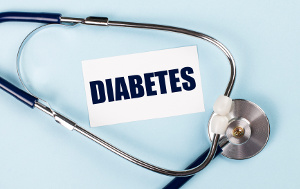 Most people with type 2 diabetes have hidden deficiencies in nutrients such as vitamin D, magnesium, and vitamin B12. This is the conclusion of a major meta-analysis published in BMJ Nutrition, Prevention & Health. The researchers also explain how diet, metabolic processes, genetics, and medication can influence the body’s ability to utilize these nutrients. Since type 2 diabetes and its precursor, metabolic syndrome, are spreading like a pandemic, much greater attention should be given to essential nutrients, as deficiencies contribute to the development and worsening of the disease.
Most people with type 2 diabetes have hidden deficiencies in nutrients such as vitamin D, magnesium, and vitamin B12. This is the conclusion of a major meta-analysis published in BMJ Nutrition, Prevention & Health. The researchers also explain how diet, metabolic processes, genetics, and medication can influence the body’s ability to utilize these nutrients. Since type 2 diabetes and its precursor, metabolic syndrome, are spreading like a pandemic, much greater attention should be given to essential nutrients, as deficiencies contribute to the development and worsening of the disease. Diabetes is spreading like a bushfire across the globe, but even if governments, doctors, and health authorities have tried desperately to bend the curve, they have not succeeded so far. On the contrary. Today, diabetes is controlled with help from different medical drugs that do not address the underlying cause and actually affect or organ systems. Because of this, diabetics often have impaired quality of life and shorter lifespans than healthy individuals. What is more, diabetics have widespread vitamin B12 and vitamin D deficiencies, which are associated with diabetic neuropathy, which is a serious complication. Cholesterol-lowering drugs (statins) are also linked to reduced levels of Q10, a compound that is necessary for energy turnover, the heart, and the cardiovascular system.
Diabetes is spreading like a bushfire across the globe, but even if governments, doctors, and health authorities have tried desperately to bend the curve, they have not succeeded so far. On the contrary. Today, diabetes is controlled with help from different medical drugs that do not address the underlying cause and actually affect or organ systems. Because of this, diabetics often have impaired quality of life and shorter lifespans than healthy individuals. What is more, diabetics have widespread vitamin B12 and vitamin D deficiencies, which are associated with diabetic neuropathy, which is a serious complication. Cholesterol-lowering drugs (statins) are also linked to reduced levels of Q10, a compound that is necessary for energy turnover, the heart, and the cardiovascular system. Weight-challenged children and teenagers have grown to become a global health threat, and the problem became even worse during the corona pandemic. Overweight is linked to a number of health problems, including non-alcoholic fatty liver disease that sets the stage for type 2 diabetes and other serious ailments. In a new review article that is published in Nutrients, researchers look closer at how a carbohydrate-restricted diet or the traditional Mediterranean diet can help to counteract the development of overweight and non-alcoholic fatty liver disease. Also, supplementation with vitamin E, vitamin D, fish oil, and probiotics can block the development of non-alcoholic fatty liver via different metabolic parameters.
Weight-challenged children and teenagers have grown to become a global health threat, and the problem became even worse during the corona pandemic. Overweight is linked to a number of health problems, including non-alcoholic fatty liver disease that sets the stage for type 2 diabetes and other serious ailments. In a new review article that is published in Nutrients, researchers look closer at how a carbohydrate-restricted diet or the traditional Mediterranean diet can help to counteract the development of overweight and non-alcoholic fatty liver disease. Also, supplementation with vitamin E, vitamin D, fish oil, and probiotics can block the development of non-alcoholic fatty liver via different metabolic parameters. Far more children are diagnosed with psychiatric disorders today. In the past seven years alone, twice as many cases of ADHD, autism, depression, and fear are diagnosed in Denmark. Communities are under pressure to find teachers, educators, psychologists and other relevant people with the right skills.
Far more children are diagnosed with psychiatric disorders today. In the past seven years alone, twice as many cases of ADHD, autism, depression, and fear are diagnosed in Denmark. Communities are under pressure to find teachers, educators, psychologists and other relevant people with the right skills. Many men suffer from erectile dysfunction, a problem that often foreshadows cardiovascular disorders. It appears that vitamin D plays a preventive role by way of several mechanisms that can even benefit diabetics, according to a new meta-analysis published in Clinical Nutrition. An earlier study that is published in Clinical Endocrinology shows that vitamin D is involved in the production of male testosterone, which is essential for the ability to obtain and maintain an erection. A man’s sexual performance is therefore highly dependent on his vitamin D levels throughout life.
Many men suffer from erectile dysfunction, a problem that often foreshadows cardiovascular disorders. It appears that vitamin D plays a preventive role by way of several mechanisms that can even benefit diabetics, according to a new meta-analysis published in Clinical Nutrition. An earlier study that is published in Clinical Endocrinology shows that vitamin D is involved in the production of male testosterone, which is essential for the ability to obtain and maintain an erection. A man’s sexual performance is therefore highly dependent on his vitamin D levels throughout life. Approximately one billion people worldwide lack vitamin D because they get too little sunlight, they overuse suncream, or they have chronic diseases that prevent proper utilization of the nutrient. This was shown in a new study that is published in The Journal of the American Osteopathic Association. During the summer period, health authorities and organizations issue warnings against the sun and recommend the use of suncream. These campaigns, however, should ideally be accompanied by recommendations on how to get enough vitamin D from other sources. Otherwise, the campaigns may do more harm than good, as all cells in the body need this essential nutrient, and the sun is the single best vitamin D source.
Approximately one billion people worldwide lack vitamin D because they get too little sunlight, they overuse suncream, or they have chronic diseases that prevent proper utilization of the nutrient. This was shown in a new study that is published in The Journal of the American Osteopathic Association. During the summer period, health authorities and organizations issue warnings against the sun and recommend the use of suncream. These campaigns, however, should ideally be accompanied by recommendations on how to get enough vitamin D from other sources. Otherwise, the campaigns may do more harm than good, as all cells in the body need this essential nutrient, and the sun is the single best vitamin D source.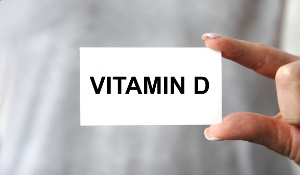 At northern latitudes, our body can only produce vitamin D during the summer months, when the sun sits sufficiently high in the sky. That’s why sun worshippers now get a much-needed boost, as blood levels of vitamin D tend to drop during the winter. However, regular exercise appears to help maintain normal levels of active vitamin D even through the darker months, according to a UK study published in Advanced Science.
At northern latitudes, our body can only produce vitamin D during the summer months, when the sun sits sufficiently high in the sky. That’s why sun worshippers now get a much-needed boost, as blood levels of vitamin D tend to drop during the winter. However, regular exercise appears to help maintain normal levels of active vitamin D even through the darker months, according to a UK study published in Advanced Science.
 Having sufficient vitamin D in your blood protects you against several cancer forms, according to a new review article that is published in Seminars in Cancer Biology. The summer sun is our primary source of the vitamin, but we can only store a limited amount in the liver for the winter period. The problem is made worse by the fact that we spend too much time indoors, and ageing even increases the risk of chronic vitamin D deficiency. The question is how much vitamin D do we need to protect us against cancer?
Having sufficient vitamin D in your blood protects you against several cancer forms, according to a new review article that is published in Seminars in Cancer Biology. The summer sun is our primary source of the vitamin, but we can only store a limited amount in the liver for the winter period. The problem is made worse by the fact that we spend too much time indoors, and ageing even increases the risk of chronic vitamin D deficiency. The question is how much vitamin D do we need to protect us against cancer?
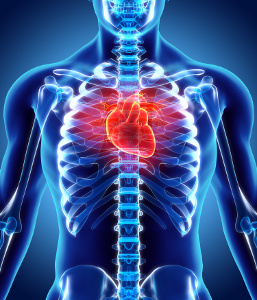 Cardiovascular disease is the leading cause of death worldwide, and our diet and lifestyle play a major role. According to an Australian study published in British Medical Journal, high-dosed vitamin D supplementation taken for several years lowers the risk of heart attacks or interventions such as angioplasty and by-pass surgery in people aged 60 years and older.
Cardiovascular disease is the leading cause of death worldwide, and our diet and lifestyle play a major role. According to an Australian study published in British Medical Journal, high-dosed vitamin D supplementation taken for several years lowers the risk of heart attacks or interventions such as angioplasty and by-pass surgery in people aged 60 years and older.
 HIV, the virus that causes AIDS, is potentially life-threatening because it attacks central cells in the immune defense. It has also been documented that HIV patients have an increased risk of lacking vitamin D. This can be because of the disease itself, the combination therapy, lack of sun exposure, or other factors. Vitamin D is important for the immune defense, the bones, our mood, and numerous other functions. According to a new article published in MedicalNews Today, it is important to measure HIV patients’ blood levels of vitamin D and possibly give them high-dosed supplements to optimize levels of the nutrient. Earlier studies point to a link between the course of an HIV infections and the body’s selenium status.
HIV, the virus that causes AIDS, is potentially life-threatening because it attacks central cells in the immune defense. It has also been documented that HIV patients have an increased risk of lacking vitamin D. This can be because of the disease itself, the combination therapy, lack of sun exposure, or other factors. Vitamin D is important for the immune defense, the bones, our mood, and numerous other functions. According to a new article published in MedicalNews Today, it is important to measure HIV patients’ blood levels of vitamin D and possibly give them high-dosed supplements to optimize levels of the nutrient. Earlier studies point to a link between the course of an HIV infections and the body’s selenium status.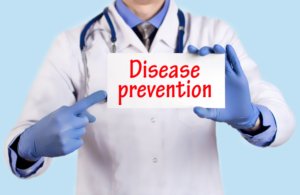
 Sales of plant-based meat, also known as meat analogue, has increased for environmental reasons and a number of other reasons. However, even if meat analogue does resemble regular animal meat it has an entirely different nutritional value. According to a study from Duke University in the United States, real meat contains 22 different nutrients and metabolites that you do not get from meat analogue. On the other hand, meat based on vegetarian sources contains 31 nutrients and metabolites that are not found in normal meat. The largest difference between the two, according to the scientists, lies in their content of amino acids, peptides, vitamins, phenols, and fatty acids. The researchers also mention that a diet based on vegetable and animal products is complementary because it contains more nutrients.
Sales of plant-based meat, also known as meat analogue, has increased for environmental reasons and a number of other reasons. However, even if meat analogue does resemble regular animal meat it has an entirely different nutritional value. According to a study from Duke University in the United States, real meat contains 22 different nutrients and metabolites that you do not get from meat analogue. On the other hand, meat based on vegetarian sources contains 31 nutrients and metabolites that are not found in normal meat. The largest difference between the two, according to the scientists, lies in their content of amino acids, peptides, vitamins, phenols, and fatty acids. The researchers also mention that a diet based on vegetable and animal products is complementary because it contains more nutrients.
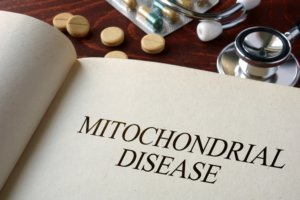 The mitochondria are the powerhouses of our cells that churn out energy in a process that involves oxygen, Q10, selenium, and other nutrients. Around 100 years ago, the German Nobel Prize winner, Professor Otto Warburg, demonstrated that even if cancer can be caused by a number of secondary factors, there is only one primary cause: alterations in the mitochondrial oxygen turnover. In his recent book, Tripping over the Truth, molecular biologist Travis Christoffersen describes how contemporary scientists confirm Warburg’s theories and says that we need to look at prevention and cancer treatment from an entirely different angle. Other studies show that Parkinson’s disease, migraine, senility, chronic fatigue, fibromyalgia, epilepsy, and other neurological disorders may be rooted in defects of the mitochondria that have many other functions besides delivering energy. It is therefore vital to take care of the mitochondria throughout life. You can read more about the ketogenic diet that optimizes mitochondrial energy turnover in different mitochondrial diseases.
The mitochondria are the powerhouses of our cells that churn out energy in a process that involves oxygen, Q10, selenium, and other nutrients. Around 100 years ago, the German Nobel Prize winner, Professor Otto Warburg, demonstrated that even if cancer can be caused by a number of secondary factors, there is only one primary cause: alterations in the mitochondrial oxygen turnover. In his recent book, Tripping over the Truth, molecular biologist Travis Christoffersen describes how contemporary scientists confirm Warburg’s theories and says that we need to look at prevention and cancer treatment from an entirely different angle. Other studies show that Parkinson’s disease, migraine, senility, chronic fatigue, fibromyalgia, epilepsy, and other neurological disorders may be rooted in defects of the mitochondria that have many other functions besides delivering energy. It is therefore vital to take care of the mitochondria throughout life. You can read more about the ketogenic diet that optimizes mitochondrial energy turnover in different mitochondrial diseases.
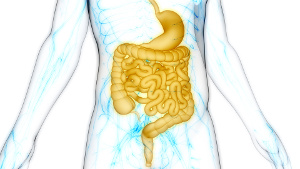
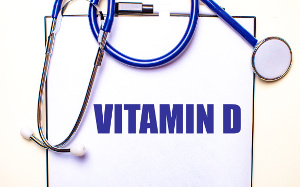 Insulin resistance is when the cells’ ability to take up glucose from the blood is impaired. It typically causes abnormal hunger and weight gain. Insulin resistance is also one of the symptoms of metabolic syndrome and type 2 diabetes. Previous studies have already demonstrated a link between vitamin D deficiency and the development of insulin resistance. The risk is even greater if you also lack magnesium, according to an American study. Here, the researchers look at interactions between vitamin D and magnesium and how this affects the blood sugar balance and health in general.
Insulin resistance is when the cells’ ability to take up glucose from the blood is impaired. It typically causes abnormal hunger and weight gain. Insulin resistance is also one of the symptoms of metabolic syndrome and type 2 diabetes. Previous studies have already demonstrated a link between vitamin D deficiency and the development of insulin resistance. The risk is even greater if you also lack magnesium, according to an American study. Here, the researchers look at interactions between vitamin D and magnesium and how this affects the blood sugar balance and health in general.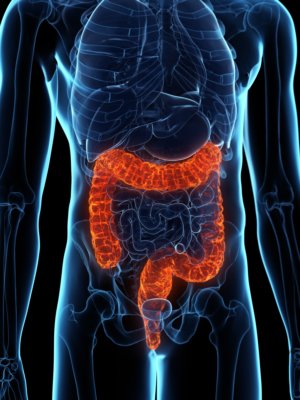 Irritable bowel is the most common intestinal disorder and affects around 15 percent of the population. The symptoms are typically unstable digestion, flatulence, constipation, diarrhea, stomach pain, and intestinal cramps. Several studies have shown that lack of vitamin D may cause the symptoms, and that taking a vitamin D supplement helps. This is because vitamin D is highly important for the intestinal immune defense and for controlling inflammation.
Irritable bowel is the most common intestinal disorder and affects around 15 percent of the population. The symptoms are typically unstable digestion, flatulence, constipation, diarrhea, stomach pain, and intestinal cramps. Several studies have shown that lack of vitamin D may cause the symptoms, and that taking a vitamin D supplement helps. This is because vitamin D is highly important for the intestinal immune defense and for controlling inflammation. Vitamin D comes in different forms that all need magnesium to be activated in order for the vitamin to be able to benefit all the cells and tissues in the body. Unfortunately, many people lack magnesium, and that makes vitamin D ineffective. Vitamin D also increases the uptake of calcium, but with too little magnesium in the organism, the risk of atherosclerosis increases, as does the risk of osteoporosis, impaired immune resistance, and metabolic syndrome (an early stage of type 2 diabetes.) All of this was observed in a study that is published in The Journal of the American Osteopathic Association.
Vitamin D comes in different forms that all need magnesium to be activated in order for the vitamin to be able to benefit all the cells and tissues in the body. Unfortunately, many people lack magnesium, and that makes vitamin D ineffective. Vitamin D also increases the uptake of calcium, but with too little magnesium in the organism, the risk of atherosclerosis increases, as does the risk of osteoporosis, impaired immune resistance, and metabolic syndrome (an early stage of type 2 diabetes.) All of this was observed in a study that is published in The Journal of the American Osteopathic Association. Scientists from Alberta University in Canada have observed that lack of sunlight may contribute to the weight increase that many people experience during the winter period. This is because our fat cells are sensitive to sunlight. Lack of sunlight may also result in poor sleep and low levels of vitamin D, a nutrient that has other metabolic functions.
Scientists from Alberta University in Canada have observed that lack of sunlight may contribute to the weight increase that many people experience during the winter period. This is because our fat cells are sensitive to sunlight. Lack of sunlight may also result in poor sleep and low levels of vitamin D, a nutrient that has other metabolic functions.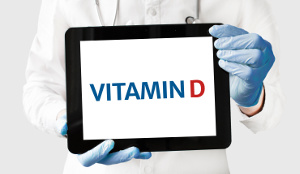 It is both healthy and life-extending to get plenty of summer sun, which is our main source of vitamin D. Just make sure not to get a sunburn. According to a large population study from University of South Australia, too little vitamin D in the blood is linked to early death, especially because of an increased risk of cardiovascular disease, cancer, and respiratory diseases. This is very relevant because, apart from the lack of sunshine during winter, things like sun awareness campaigns, indoor living, being overweight, and having dark skin can contribute to the widespread lack of vitamin D. The official recommendations for vitamin D intake are also comparatively conservative. Therefore, people should strive to optimize their levels of the nutrient, as vitamin D is involved in regulating countless gene activities and other functions in the body.
It is both healthy and life-extending to get plenty of summer sun, which is our main source of vitamin D. Just make sure not to get a sunburn. According to a large population study from University of South Australia, too little vitamin D in the blood is linked to early death, especially because of an increased risk of cardiovascular disease, cancer, and respiratory diseases. This is very relevant because, apart from the lack of sunshine during winter, things like sun awareness campaigns, indoor living, being overweight, and having dark skin can contribute to the widespread lack of vitamin D. The official recommendations for vitamin D intake are also comparatively conservative. Therefore, people should strive to optimize their levels of the nutrient, as vitamin D is involved in regulating countless gene activities and other functions in the body.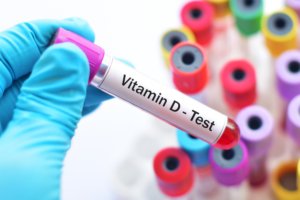 Expecting mothers should pay careful attention to getting enough vitamin D all year round, especially because vitamin D deficiencies are so commonplace, to begin with. Lack of vitamin D at birth and the first years of life is associated with an increased risk of infant hypertension, and the problem can even continue to adulthood. This was shown in a study that is published in the science journal Hypertension. The researchers advise pregnant women to have their vitamin D levels measured, and they even recommend vitamin D supplements for pregnant women and children as a way of preventing elevated blood pressure later in life.
Expecting mothers should pay careful attention to getting enough vitamin D all year round, especially because vitamin D deficiencies are so commonplace, to begin with. Lack of vitamin D at birth and the first years of life is associated with an increased risk of infant hypertension, and the problem can even continue to adulthood. This was shown in a study that is published in the science journal Hypertension. The researchers advise pregnant women to have their vitamin D levels measured, and they even recommend vitamin D supplements for pregnant women and children as a way of preventing elevated blood pressure later in life. The number of children and adolescents with ADHD has skyrocketed in the past decade, and the human and socioeconomic costs are enormous. A major cause may be the widespread problems with vitamin D deficiency, according to a study from Turku University in Finland. It does not make things any easier that sun awareness campaigns fail to give people an alternative way of getting enough vitamin D all year around, and it is also a problem that many pregnant women don’t take their supplements as recommended.
The number of children and adolescents with ADHD has skyrocketed in the past decade, and the human and socioeconomic costs are enormous. A major cause may be the widespread problems with vitamin D deficiency, according to a study from Turku University in Finland. It does not make things any easier that sun awareness campaigns fail to give people an alternative way of getting enough vitamin D all year around, and it is also a problem that many pregnant women don’t take their supplements as recommended.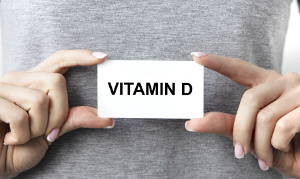 Vitamin D controls a variety of processes in the brain and that is important for the child in a number of different ways. According to a new study from University of Queensland, Australia, there is an increased risk of autism – especially among boys – if the mother lacks vitamin D during her pregnancy. The explanation lies in the fact that the vitamin deficiency can affect levels of sex hormones in the brain. Several studies link vitamin D deficiency to autism and show that vitamin D supplements can improve hyperactivity and other signs of impaired functioning in children with autism.
Vitamin D controls a variety of processes in the brain and that is important for the child in a number of different ways. According to a new study from University of Queensland, Australia, there is an increased risk of autism – especially among boys – if the mother lacks vitamin D during her pregnancy. The explanation lies in the fact that the vitamin deficiency can affect levels of sex hormones in the brain. Several studies link vitamin D deficiency to autism and show that vitamin D supplements can improve hyperactivity and other signs of impaired functioning in children with autism. It has long been known that vitamin D deficiencies increase the risk of sclerosis. According to a study that is published in JAMA Neurology, having too little vitamin D is even a problem during pregnancy, as it increases the child's risk of developing sclerosis later in life.
It has long been known that vitamin D deficiencies increase the risk of sclerosis. According to a study that is published in JAMA Neurology, having too little vitamin D is even a problem during pregnancy, as it increases the child's risk of developing sclerosis later in life.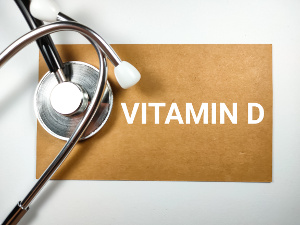 Vitamin D’s role in maintaining proper health is well documented. Still, many older people lack the nutrient and that increases their risk of bone fractures, blood poisoning, and disease complications that can eventually lead to hospitalization. Also, they risk prolonged hospitalization according to a new Irish study published in the scientific journal Nutrients. The scientists recommend giving vitamin D supplements to seniors to increase their blood levels of vitamin D. Other studies even suggest that this can protect against COVID-19, as low vitamin D status is associated with an increased risk of being hospitalized with the disease.
Vitamin D’s role in maintaining proper health is well documented. Still, many older people lack the nutrient and that increases their risk of bone fractures, blood poisoning, and disease complications that can eventually lead to hospitalization. Also, they risk prolonged hospitalization according to a new Irish study published in the scientific journal Nutrients. The scientists recommend giving vitamin D supplements to seniors to increase their blood levels of vitamin D. Other studies even suggest that this can protect against COVID-19, as low vitamin D status is associated with an increased risk of being hospitalized with the disease.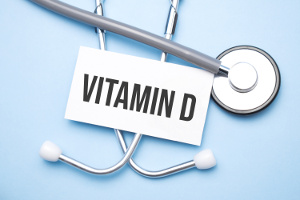 Vitamin D-deficient experimental animals are more likely to become dependent on opioids such as morphine, but their addiction decreases once their blood levels of vitamin D are restored. This was shown in an American study that is published in Science Advances. The scientists assume that low vitamin D levels also increase humans’ risk of growing dependent on opioids following medical pain treatment or other forms of exposure to addictive drugs. Both the legal and illegal opioid abuse in the United States is currently that extensive, experts refer to the problem as an epidemic. One potential way to deal with opioid dependence is to use vitamin D as a supplement, according to the researchers.
Vitamin D-deficient experimental animals are more likely to become dependent on opioids such as morphine, but their addiction decreases once their blood levels of vitamin D are restored. This was shown in an American study that is published in Science Advances. The scientists assume that low vitamin D levels also increase humans’ risk of growing dependent on opioids following medical pain treatment or other forms of exposure to addictive drugs. Both the legal and illegal opioid abuse in the United States is currently that extensive, experts refer to the problem as an epidemic. One potential way to deal with opioid dependence is to use vitamin D as a supplement, according to the researchers.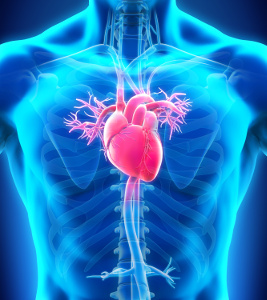 Atrial fibrillation is a rhythm disturbance in the electrical system of the heart. It is also one of the most common heart disorders and can be both harmless and potentially life-threatening. Lack of vitamin D increases the risk of normal atrial fibrillation and postoperative atrial fibrillation, according to a meta-analysis that is published in the scientific journal Nutrition. Vitamin D deficiencies are rather common so it is important to make sure to get enough of the nutrient for preventing and treating this disorder.
Atrial fibrillation is a rhythm disturbance in the electrical system of the heart. It is also one of the most common heart disorders and can be both harmless and potentially life-threatening. Lack of vitamin D increases the risk of normal atrial fibrillation and postoperative atrial fibrillation, according to a meta-analysis that is published in the scientific journal Nutrition. Vitamin D deficiencies are rather common so it is important to make sure to get enough of the nutrient for preventing and treating this disorder.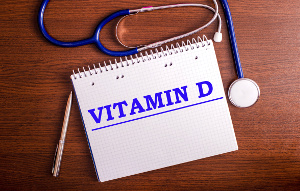 Vitamin D plays an overlooked role in the immune defense. Being deficient of the nutrient increases your risk of bacterial pneumonia by up to 60 percent, according to a large Danish study of 116,000 participants that was carried out by scientists from Herlev Hospital, Gentofte Hospital, and the University of Copenhagen.
Vitamin D plays an overlooked role in the immune defense. Being deficient of the nutrient increases your risk of bacterial pneumonia by up to 60 percent, according to a large Danish study of 116,000 participants that was carried out by scientists from Herlev Hospital, Gentofte Hospital, and the University of Copenhagen.
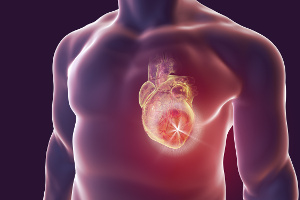 Vitamin D deficiencies are widespread and result in an increased risk of atherosclerosis, heart disease, and hypertension, according to a new study from University of South Australia. Because cardiovascular diseases are the leading cause of death globally, scientists see a huge potential in vitamin D, a nutrient that may be able to save millions of lives.
Vitamin D deficiencies are widespread and result in an increased risk of atherosclerosis, heart disease, and hypertension, according to a new study from University of South Australia. Because cardiovascular diseases are the leading cause of death globally, scientists see a huge potential in vitamin D, a nutrient that may be able to save millions of lives.
 It is hardly a coincidence that sore throats, colds, flus, and related complications such as sinus infections and pneumonia typically circulate during the winter period. They are primarily a result of having low vitamin D levels. During the winter, the sun sits too low in the sky to enable vitamin D synthesis in our skin, and we only have a limited amount of the nutrient stored in the liver. Good hand hygiene, warm soup, garlic, echinacea and other immune-boosting herbs alone will not deal with the problem, as they can never compensate for our lack of essential vitamin D, which the white blood cells of our immune system need in order to silently kill of virus. But how much vitamin D do we need, is it possible to get too much, and which mineral is necessary for activating the vitamin?
It is hardly a coincidence that sore throats, colds, flus, and related complications such as sinus infections and pneumonia typically circulate during the winter period. They are primarily a result of having low vitamin D levels. During the winter, the sun sits too low in the sky to enable vitamin D synthesis in our skin, and we only have a limited amount of the nutrient stored in the liver. Good hand hygiene, warm soup, garlic, echinacea and other immune-boosting herbs alone will not deal with the problem, as they can never compensate for our lack of essential vitamin D, which the white blood cells of our immune system need in order to silently kill of virus. But how much vitamin D do we need, is it possible to get too much, and which mineral is necessary for activating the vitamin?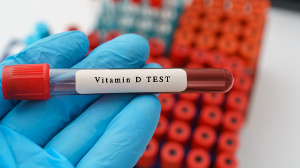 Type 2 diabetes is currently treated with a number of different medical drugs. However, the medicine is not able to deal with the underlying causes of the disease that affects most organ systems. A Chinese study has demonstrated that vitamin D deficiency is linked to diabetic neuropathy, which is an insidious condition and is associated with inflammation, pain, amputation, circulatory failure, and early death.
Type 2 diabetes is currently treated with a number of different medical drugs. However, the medicine is not able to deal with the underlying causes of the disease that affects most organ systems. A Chinese study has demonstrated that vitamin D deficiency is linked to diabetic neuropathy, which is an insidious condition and is associated with inflammation, pain, amputation, circulatory failure, and early death.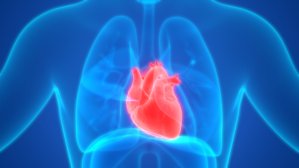 Get lots of sunlight. It is the richest source of vitamin D. Also make sure to take a vitamin D supplement if, for some reason or other, you are unable to get enough sun exposure – and most certainly during the winter period. Studies show that lack of vitamin D may lead to heart failure due to insulin resistance, which is an early stage of diabetes. In other words, having too little vitamin D in your blood may impair the heart’s ability to take up blood sugar and that can cause a morbid enlargement of the cardiac muscle. This was seen in an Indian study that is published in the journal Molecular Nutrition and Food Research. The scientists see vitamin D as having huge potential in the prevention and treatment of cardiac failure plus insulin resistance and diabetes that is spreading like a bushfire.
Get lots of sunlight. It is the richest source of vitamin D. Also make sure to take a vitamin D supplement if, for some reason or other, you are unable to get enough sun exposure – and most certainly during the winter period. Studies show that lack of vitamin D may lead to heart failure due to insulin resistance, which is an early stage of diabetes. In other words, having too little vitamin D in your blood may impair the heart’s ability to take up blood sugar and that can cause a morbid enlargement of the cardiac muscle. This was seen in an Indian study that is published in the journal Molecular Nutrition and Food Research. The scientists see vitamin D as having huge potential in the prevention and treatment of cardiac failure plus insulin resistance and diabetes that is spreading like a bushfire.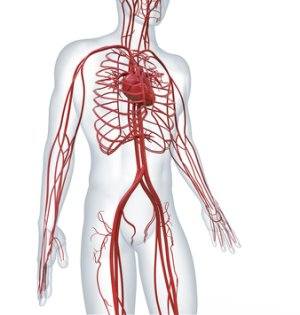 In a matter of four months only, large doses of vitamin D were able to reduce arterial stiffness in young, overweight but otherwise healthy Afro-Americans, according to a study from Georgia, the United States. The study also showed that those participants, who only took the officially recommended quantities of vitamin D, had increased arterial stiffness. This suggests that the official vitamin D recommendations are too low to prevent stiff arteries and atherosclerosis. Another thing is that dark-skinned people living at northern latitudes, overweight individuals, older people diabetics, and those who overuse sun screen are at increased risk of synthesizing too little vitamin D.
In a matter of four months only, large doses of vitamin D were able to reduce arterial stiffness in young, overweight but otherwise healthy Afro-Americans, according to a study from Georgia, the United States. The study also showed that those participants, who only took the officially recommended quantities of vitamin D, had increased arterial stiffness. This suggests that the official vitamin D recommendations are too low to prevent stiff arteries and atherosclerosis. Another thing is that dark-skinned people living at northern latitudes, overweight individuals, older people diabetics, and those who overuse sun screen are at increased risk of synthesizing too little vitamin D. A large Israeli population study of over 4.6 million people shows that lack of sunshine and vitamin D increases the risk of COVID-19 infections and new infection waves in the winter period. The study shows why seniors, those with chronic disease, overweight individuals, and certain ethnic groups such as orthodox male Jews and female Muslims are more vulnerable. The scientists recommend vitamin D supplementation throughout the winter period or even all year round for those who do not get enough sun exposure during the summer. You can also read about why face masks block the body’s vitamin D synthesis, why COVID-19 originates from bats, and other mysteries related to the spread of the infection.
A large Israeli population study of over 4.6 million people shows that lack of sunshine and vitamin D increases the risk of COVID-19 infections and new infection waves in the winter period. The study shows why seniors, those with chronic disease, overweight individuals, and certain ethnic groups such as orthodox male Jews and female Muslims are more vulnerable. The scientists recommend vitamin D supplementation throughout the winter period or even all year round for those who do not get enough sun exposure during the summer. You can also read about why face masks block the body’s vitamin D synthesis, why COVID-19 originates from bats, and other mysteries related to the spread of the infection.

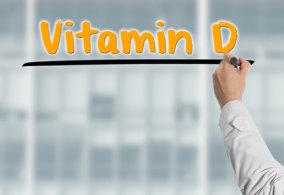 American scientists have demonstrated that measurements of vitamin D levels in patients with early stages of sclerosis may predict how fast the disease will progress. If levels are low it may be a sign of faster disease progression and also a sign that this development may be slowed down if the patients increase their vitamin D intake.
American scientists have demonstrated that measurements of vitamin D levels in patients with early stages of sclerosis may predict how fast the disease will progress. If levels are low it may be a sign of faster disease progression and also a sign that this development may be slowed down if the patients increase their vitamin D intake. More than 25 percent of people older than 65 years have low levels of vitamin D in their blood. Deficiencies in vitamin B12, folic acid, and iron are also common. This is the conclusion of a large study that was conducted by scientists from Helmholtz Zentrum in Munich, Germany. The widespread lack of vitamins and minerals among older people is critical, especially because this population group is increasing. The lack of essential nutrients affects the calcium uptake, immune defense, and nervous system among other things, leaving older people increasingly vulnerable to osteoporosis, influenza, dementia, and a host of other diseases that impair quality of life and burden the entire public health sector.
More than 25 percent of people older than 65 years have low levels of vitamin D in their blood. Deficiencies in vitamin B12, folic acid, and iron are also common. This is the conclusion of a large study that was conducted by scientists from Helmholtz Zentrum in Munich, Germany. The widespread lack of vitamins and minerals among older people is critical, especially because this population group is increasing. The lack of essential nutrients affects the calcium uptake, immune defense, and nervous system among other things, leaving older people increasingly vulnerable to osteoporosis, influenza, dementia, and a host of other diseases that impair quality of life and burden the entire public health sector. Despite official recommendations to give infants a daily vitamin D supplement, nearly 50% of parents forget to follow this advice according to a large new Danish study. Not only do the children risk weak bones, it also increases their risk of infections and autism, other studies suggest.
Despite official recommendations to give infants a daily vitamin D supplement, nearly 50% of parents forget to follow this advice according to a large new Danish study. Not only do the children risk weak bones, it also increases their risk of infections and autism, other studies suggest.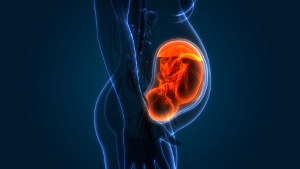 During pregnancy, the unborn child is totally dependent on the mother’s vitamin D status. Vitamin D is primarily known for its role in supporting bone development. However, the vitamin is also of vital importance to the child’s brain, cognitive skills, and intelligence. According to a new, American study that is published in The Journal of Nutrition, this is why it is so important for pregnant women to have optimal vitamin D levels in their blood. The researchers point to the fact that vitamin D deficiencies are rather common and mention that they observed significantly lower blood levels of the nutrient in pregnant women of color. They hope their study can contribute to increased focus on the benefits of vitamin D supplementation in pregnancy.
During pregnancy, the unborn child is totally dependent on the mother’s vitamin D status. Vitamin D is primarily known for its role in supporting bone development. However, the vitamin is also of vital importance to the child’s brain, cognitive skills, and intelligence. According to a new, American study that is published in The Journal of Nutrition, this is why it is so important for pregnant women to have optimal vitamin D levels in their blood. The researchers point to the fact that vitamin D deficiencies are rather common and mention that they observed significantly lower blood levels of the nutrient in pregnant women of color. They hope their study can contribute to increased focus on the benefits of vitamin D supplementation in pregnancy.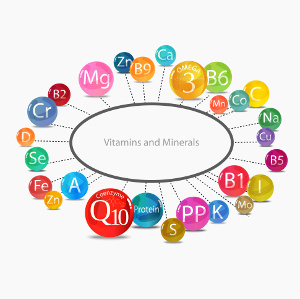 There are around 750,000 people in Denmark who take several medical drugs per day, and the number of users is on the rise. What many people are unaware of is that different drugs can disrupt the body’s ability to absorb or utilize one or several nutrients, especially things like B vitamins, vitamin C, vitamin D, vitamin K2, magnesium, potassium, calcium, zinc, iron, and coenzyme Q10. It is therefore vital to get sufficient amounts of the mentioned nutrients to reduce the risk of adverse effects.
There are around 750,000 people in Denmark who take several medical drugs per day, and the number of users is on the rise. What many people are unaware of is that different drugs can disrupt the body’s ability to absorb or utilize one or several nutrients, especially things like B vitamins, vitamin C, vitamin D, vitamin K2, magnesium, potassium, calcium, zinc, iron, and coenzyme Q10. It is therefore vital to get sufficient amounts of the mentioned nutrients to reduce the risk of adverse effects.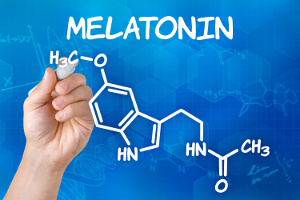 In the summertime, we synthesize vitamin D in our skin when we expose ourselves to sunlight. Vitamin D is a nutrient that is of vital importance to mood and health in general. When it is dark outside, we produce melatonin, which is important for our sleep. In addition to that, melatonin has a number of other important functions. Over the past decades, science has focused on its potential in the prevention of cancer, Alzheimer’s disease, sclerosis, and several other diseases. Apparently, vitamin D and melatonin work as hormones day and night and are of vital importance to the immune system. Also, they regulate inflammation, protect cells, and have many other functions. In a new review article that is published in Nutrients, the scientists refer to melatonin as the “next vitamin D”. Also, they mention that many people get too little sunlight during the day and too little darkness at night, which results in a deficiency of both vitamin D and melatonin.
In the summertime, we synthesize vitamin D in our skin when we expose ourselves to sunlight. Vitamin D is a nutrient that is of vital importance to mood and health in general. When it is dark outside, we produce melatonin, which is important for our sleep. In addition to that, melatonin has a number of other important functions. Over the past decades, science has focused on its potential in the prevention of cancer, Alzheimer’s disease, sclerosis, and several other diseases. Apparently, vitamin D and melatonin work as hormones day and night and are of vital importance to the immune system. Also, they regulate inflammation, protect cells, and have many other functions. In a new review article that is published in Nutrients, the scientists refer to melatonin as the “next vitamin D”. Also, they mention that many people get too little sunlight during the day and too little darkness at night, which results in a deficiency of both vitamin D and melatonin.

 The winter period is the time of year where we typically lack vitamin D, and this contributes to new waves of COVID-19 and other virus infections. Moreover, many older people, dark-skinned individuals, nursing home residents, and diabetics often suffer from chronic vitamin D deficiency which makes them much more vulnerable. Since the springe of 2020, numerous studies have demonstrated that lack of vitamin D increases the risk of COVID-19 infections, acute respiratory distress syndrome (ARDS), intensive care admission, and death. This is described in a new meta-analysis that is published in Frontiers in Public Health. Danish threshold levels for vitamin D in the blood are also too low, apparently. The question is: How much vitamin D do we really need?
The winter period is the time of year where we typically lack vitamin D, and this contributes to new waves of COVID-19 and other virus infections. Moreover, many older people, dark-skinned individuals, nursing home residents, and diabetics often suffer from chronic vitamin D deficiency which makes them much more vulnerable. Since the springe of 2020, numerous studies have demonstrated that lack of vitamin D increases the risk of COVID-19 infections, acute respiratory distress syndrome (ARDS), intensive care admission, and death. This is described in a new meta-analysis that is published in Frontiers in Public Health. Danish threshold levels for vitamin D in the blood are also too low, apparently. The question is: How much vitamin D do we really need?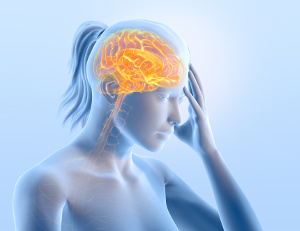
 For decades, we’ve been told how dangerous the sun is and how important it is to protect ourselves. Now, a large British population study of more than half a million participants reveals that getting more sun exposure – even using tanning beds – is linked to fewer deaths from cardiovascular disease, cancer, and other things. The explanation lies in the UVB rays, which are the best way to get essential vitamin D, but only when the sun sits sufficiently high in the sky. It appears that all the sun awareness campaigns have done more harm than good, because it is vital to get enough sunlight, as long as we don’t get burned. The British study supports an earlier Swedish population study that revealed that lack of sun is every bit as harmful as smoking. People should take a vitamin D supplement during the winter period, and those who don’t get enough sun or who have difficulty with synthesizing vitamin D should supplement all year round.
For decades, we’ve been told how dangerous the sun is and how important it is to protect ourselves. Now, a large British population study of more than half a million participants reveals that getting more sun exposure – even using tanning beds – is linked to fewer deaths from cardiovascular disease, cancer, and other things. The explanation lies in the UVB rays, which are the best way to get essential vitamin D, but only when the sun sits sufficiently high in the sky. It appears that all the sun awareness campaigns have done more harm than good, because it is vital to get enough sunlight, as long as we don’t get burned. The British study supports an earlier Swedish population study that revealed that lack of sun is every bit as harmful as smoking. People should take a vitamin D supplement during the winter period, and those who don’t get enough sun or who have difficulty with synthesizing vitamin D should supplement all year round.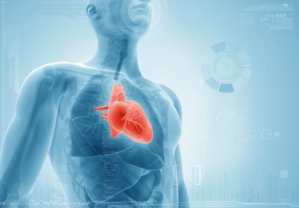 The majority of supplements with vitamins and minerals fails to extend life or protect against cardiovascular disease, although fish oil does seem to have a good effect, according to a large review from John Hopkins University. On the other hand, a Danish study shows that blood levels of vitamin D are crucial for a person’s expected lifespan, and a groundbreaking Swedish study shows that patented supplements with Q10 and selenium benefit older people by improving their cardiac health and reducing cardiovascular mortality by 50%. What matters is to use supplements that contain nutrients in the right quantity, which have a proper quality and can be absorbed by the body. In the following, you can read more about the different studies and learn how you can improve your heart health and increase your chances of a longer life.
The majority of supplements with vitamins and minerals fails to extend life or protect against cardiovascular disease, although fish oil does seem to have a good effect, according to a large review from John Hopkins University. On the other hand, a Danish study shows that blood levels of vitamin D are crucial for a person’s expected lifespan, and a groundbreaking Swedish study shows that patented supplements with Q10 and selenium benefit older people by improving their cardiac health and reducing cardiovascular mortality by 50%. What matters is to use supplements that contain nutrients in the right quantity, which have a proper quality and can be absorbed by the body. In the following, you can read more about the different studies and learn how you can improve your heart health and increase your chances of a longer life.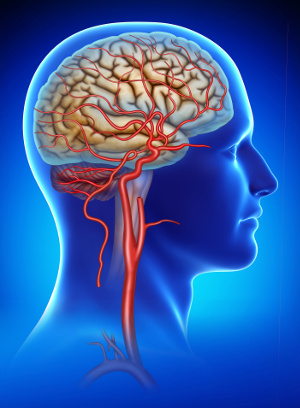
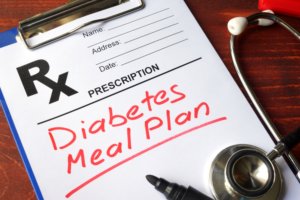 Diabetes is spreading with epidemic proportions, and an alarmingly high number of people are affected by metabolic syndrome, an early stage of diabetes that causes insulin resistance, elevated cholesterol, hypertension, and enlarged waist circumference. Ever since the 1970s, diabetics have been advised to stick with a low-fat diet consisting of bread, potatoes, and other carbohydrate sources. However, a new Danish study reveals that it is best to cut back on your carbohydrate intake. The new message to diabetics supports research from other parts of the world. Diabetics and people with sensitive blood sugar should focus on eating a diet with fewer carbohydrates, more protein, and more healthy fats. They should also make sure to get enough chromium, vitamin D, and magnesium, all of which are nutrients that support the body’s blood sugar levels. Furthermore, vitamin B12 and Q10 are important for those, who take diabetes medication and cholesterol-lowering drugs (statins).
Diabetes is spreading with epidemic proportions, and an alarmingly high number of people are affected by metabolic syndrome, an early stage of diabetes that causes insulin resistance, elevated cholesterol, hypertension, and enlarged waist circumference. Ever since the 1970s, diabetics have been advised to stick with a low-fat diet consisting of bread, potatoes, and other carbohydrate sources. However, a new Danish study reveals that it is best to cut back on your carbohydrate intake. The new message to diabetics supports research from other parts of the world. Diabetics and people with sensitive blood sugar should focus on eating a diet with fewer carbohydrates, more protein, and more healthy fats. They should also make sure to get enough chromium, vitamin D, and magnesium, all of which are nutrients that support the body’s blood sugar levels. Furthermore, vitamin B12 and Q10 are important for those, who take diabetes medication and cholesterol-lowering drugs (statins).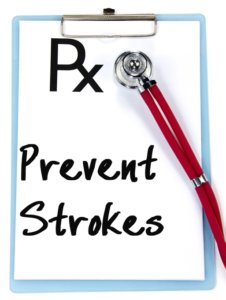 The whole climate debate has made it increasingly popular to become a vegetarian or a vegan. However, according to a new and comprehensive study from Oxford, this choice of lifestyle may have grave health consequences and can increase your risk of apoplexy, also known as stroke, cerebral hemorrhage or cerebral thrombosis. The study is published in British Medical Journal. Earlier studies also give rise to concern, as a plant-based diet often lacks protein, vitamin D, vitamin B12, iodine, selenium, iron, and omega-3 fatty acids, and that can increase the risk of thyroid disorders, neurological disorders, infections, chronic inflammation, impaired fertility, growth disturbances in children etc. Some of these deficiencies are insidious and difficult to link to the diet.
The whole climate debate has made it increasingly popular to become a vegetarian or a vegan. However, according to a new and comprehensive study from Oxford, this choice of lifestyle may have grave health consequences and can increase your risk of apoplexy, also known as stroke, cerebral hemorrhage or cerebral thrombosis. The study is published in British Medical Journal. Earlier studies also give rise to concern, as a plant-based diet often lacks protein, vitamin D, vitamin B12, iodine, selenium, iron, and omega-3 fatty acids, and that can increase the risk of thyroid disorders, neurological disorders, infections, chronic inflammation, impaired fertility, growth disturbances in children etc. Some of these deficiencies are insidious and difficult to link to the diet. "After about one week of taking the Q10 supplement I could feel a huge difference," says 23-year old Alan Piccini, who has been suffering from extreme fatigue and muscle aches ever since he was a child.
"After about one week of taking the Q10 supplement I could feel a huge difference," says 23-year old Alan Piccini, who has been suffering from extreme fatigue and muscle aches ever since he was a child. “Taking capsules with co-enzyme Q10 has freed me of the severe side effects of my cholesterol lowering medicine,” Mrs Franken explains.
“Taking capsules with co-enzyme Q10 has freed me of the severe side effects of my cholesterol lowering medicine,” Mrs Franken explains.